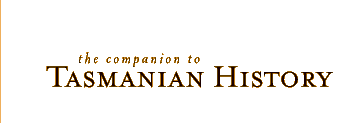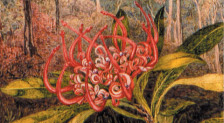 |
 |
|
Peter's Foundry Peter's Foundry in Launceston dates from 1833, when John Williams set up the Wellington Street Foundry. This was bought and renamed by William Peter in 1843. Until 1845, most products were for agricultural use, but that year the foundry made the first Peter's stove, which became a company trademark product. Iron ore mined at Ilfracombe was smelted between 1861 and the mid-1870s. Decorative iron railings and columns were produced by the early 1860s. The foundry serviced the infant mining industry through the 1870s with iron castings, mineral processing equipment and cast iron pipes. Following William Peter's retirement in 1882, a partnership was formed between his son James and Charles Saul, a specialist in marine engines for steam launches. In 1890 the company, operating from the Vulcan Foundry, was re-formed as Peter & Son, its products including elements of the bridge at Corra Lynn, wrought iron gates for City Park, agricultural implements, bridge components such as pile shoes for foundations, brackets, columns and railings for road decking. The business merged with WH Knight's Phoenix Foundry in 1926. This company went into liquidation in 1930 but a new foundry, the Phoenix, began on the site with similar owners. In its entire history the foundry moved only twice, from Wellington Street to a site beside the Metropolitan Transport Trust, then in 1966 to Youngtown. After many changes of ownership, in 2004 it trades as Bradken, and is not only the largest foundry in Tasmania, and the oldest continuously operating foundry in the southern hemisphere, but the second-oldest manufacturing business in Tasmania, just a week younger than Cascade Brewery. Further reading: M Morris-Nunn & CB Tassell, Launceston's industrial heritage, Launceston, 1982; 'Celebrating 150 years', unpublished article, in the possession of Bradken. Keith Preston and Mike Shaw |
Copyright 2006, Centre for Tasmanian Historical Studies |